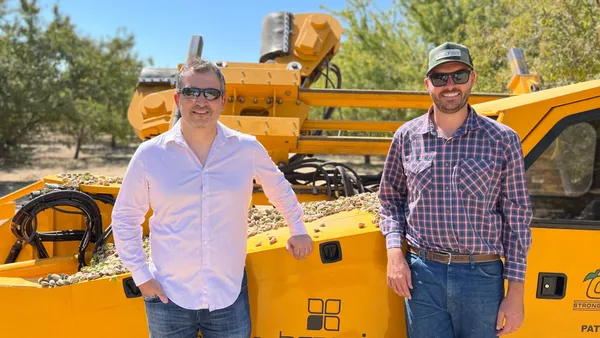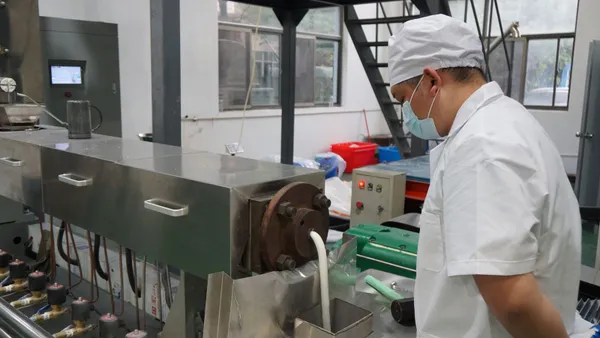Dive Brief:
- Investments and partnerships related to climate-smart agriculture and food systems have nearly doubled at COP29 over last year’s event as decision-makers further prioritize farming’s role in addressing the effects of a warming planet.
- The Agriculture Innovation Missions for Climate, a joint initiative between the United States and United Arab Emirates, said Monday that investments in 2024 have surged from $17 billion to $29.2 billion over a 2020 baseline.
- The increase includes $16.7 billion from 56 countries and $12.5 billion from private companies and other non-government partners, according to a release. The addition of new funding sprints such as the Bezos Earth Fund also helped accelerate investment.
Dive Insight:
Interest in climate-smart agriculture and food systems has soared in recent years after the sector became more of an emphasis at the United Nations’ annual climate event.
Since launching three years ago at COP26, AIM for Climate has mobilized tens of billions of dollars in investments from more than 800 government and non-government partners to help address climate change and global hunger.
The initiative has gained momentum this year with the addition of 52 Innovation Sprints, bringing the total to 129. The sprints are commitments from nonprofit and private sector partners to increase investments in climate-smart agriculture and food systems from 2021 to 2025. Projects span from advancing sustainable agriculture among smallholder farmers to increasing production of alternative proteins.
The United States’ investment in AIM for Climate has topped $4.3 billion, with nearly $4 billion coming from the U.S. Department of Agriculture during the Biden administration. The USDA will provide $80 million to Atlas Agro North America Corporation’s funding sprint in efforts to increase nitrogen fertilizer availability without adding to agriculture’s carbon footprint.
“Farmers, ranchers and foresters in the U.S. and across the world have experienced the increasing destruction caused by natural disasters,” USDA Secretary Tom Vilsack said in remarks at COP29. “The best way to combat the impacts of climate change is to equip producers of all sizes with the tools they need to adapt and build resilience.”











